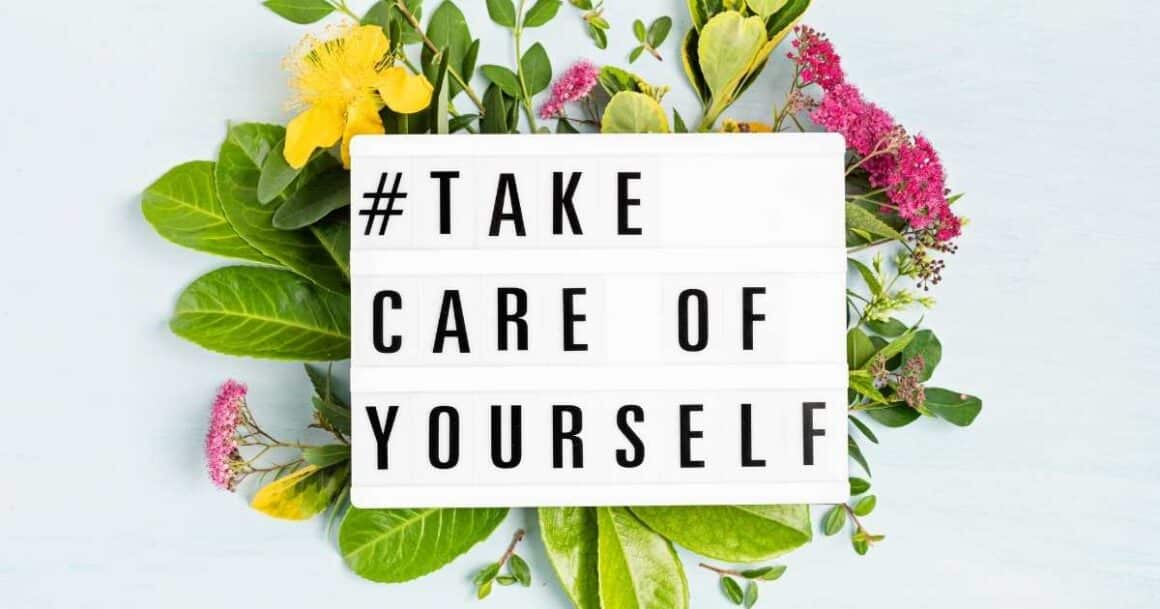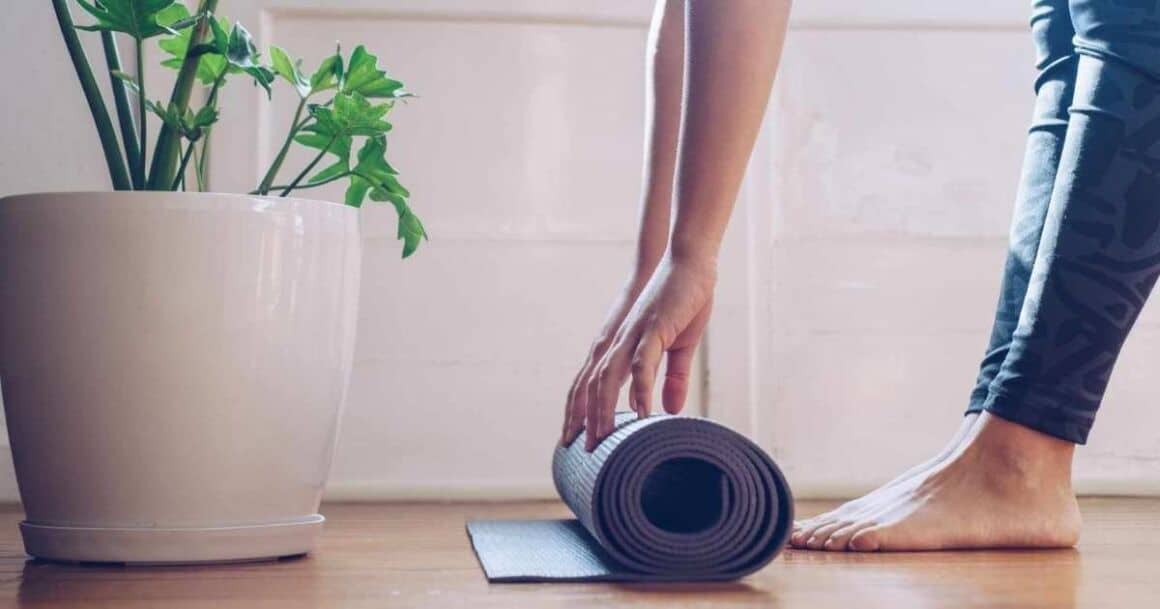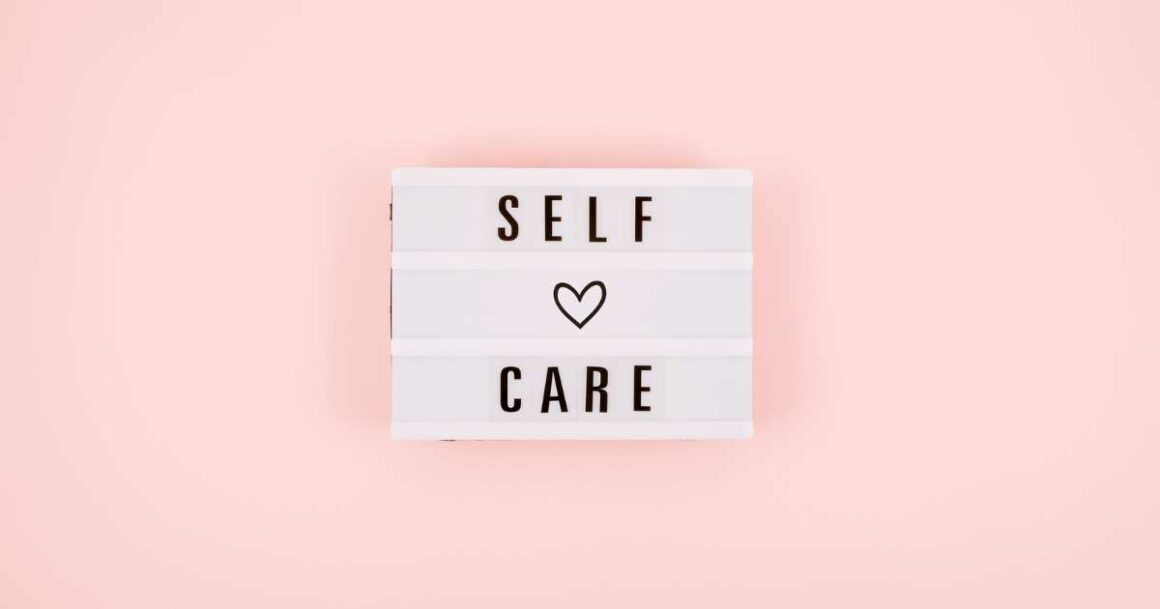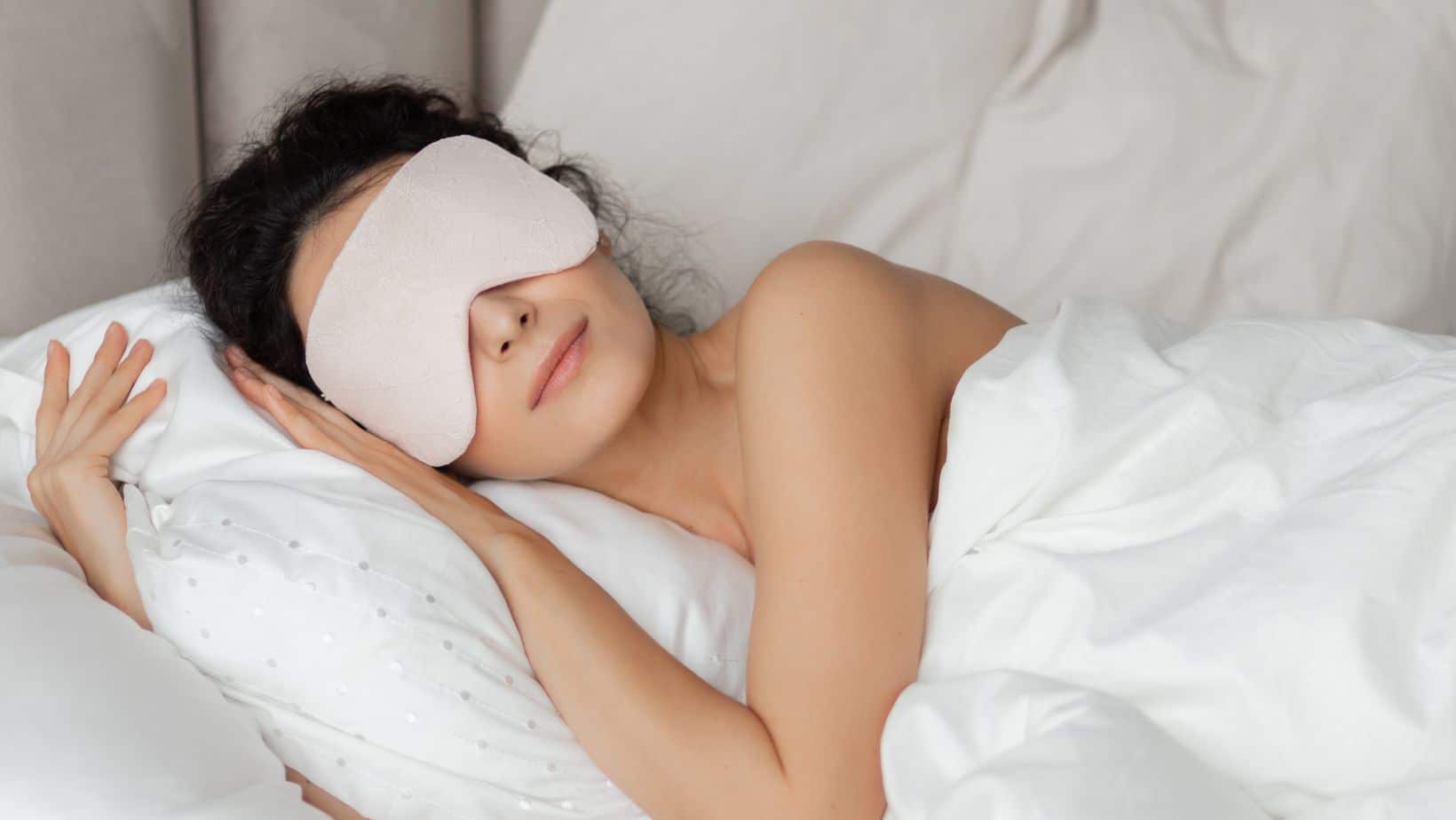(Eight) 8 Types of Self-Care + How to Practice Them
In this article, we’ll explore the 8 types of self-care and how to practice them.
Self-care has become a buzzword in recent years and for a good reason.
Taking care of yourself is essential to maintain a healthy mind, body, and soul. There are various types of self-care, each essential for overall well-being.
This post may contain affiliate links. Click to visit policies and disclosures

The Definition of Self-care
The World Health Organization describes self-care as “the ability of individuals, families, and communities to promote health, prevent disease, maintain health, and to cope with illness and disability with or without the support of a healthcare provider.”
The Importance of Self-Care
Self-care is a necessary part of life; it should not be considered a luxury. Taking care of yourself is essential for your physical, mental, emotional, and overall well-being.
The Benefits of Self-care
Research shows that self-care has been clinically proven to reduce or eliminate anxiety and depression, reduce stress, improve concentration, minimize frustration and anger, increase happiness, improve energy, and more. (source)
In addition, caring for yourself can significantly impact your quality of life, overall happiness, and even your life span!
Consequences of not practicing self-care:
- Overwhelm and burnout
- Depression and anxiety
- Mood swings
- Anger and resentment
- Increased stress and stress-related disease
- Sleep disturbances or insomnia
- Challenges in choosing healthy food and urges to eat “comfort” foods
- Worsening mental health symptoms like depression or anxiety
- Strain in relationships
- Reduced performance at work
- Brain Fog and difficulty concentrating
- Less motivation to engage in social activities

Self-care Reduces Stress
One of the most significant consequences of self-neglect or lack of self-care is high stress levels.
Studies have found many health problems related to stress.
Stress worsens or increases the risk of obesity, heart disease, Alzheimer’s disease, diabetes, depression, gastrointestinal problems, asthma, and more. (source)
So, in summary, if you manage stress well, you’ve got a much better chance of living a happy, healthy, long life!
Practicing self-care consistently is the key to stress management.
Related: Make a Stress Management Plan
Shop Eight Types of Self-care
More Insight About Self-Care
Practicing self-care has been defined as taking all the steps possible to care for your physical health and well-being, including hygiene, nutrition, managing stress, and seeking medical care if needed.
According to the global self-care Federation, Self-care is the practice of individuals looking after their health using the knowledge and information available.
It is a decision-making process that empowers individuals to look after their health efficiently and conveniently, collaborating with health and social care professionals as needed.
Whoa! That makes it pretty clear.
Now, let’s outline each type of self-care and the best ways to put them into daily practice.
The (eight) 8 Types of Self-care
There are eight (8) different types of self-care or pillars of self-care.
From caring for your intellectual needs to validating your emotional feelings, self-care is more than just a spa day or a digital detox. (although those are all good things!)
The eight types of self-care are:
- Physical Self-care
- Mental self-care
- EmotionalSelf-care
- Social Self-care
- Professional Self-care
- Environmental Self-care
- Spiritual Self-Care
- Financial Self-care

1. Physical Self-care
First up on the eight types of self-care is physical self-care, which is just what you would think.
Physical self-care is about taking care of your body and your physical well-being.
Examples of Physical Self-care
Healthy Diet
Eating a healthy and balanced diet is essential to physical self-care.
In addition to eating a well-balanced diet, you should ensure you are taking the right vitamins and supplements to prevent deficiency in any vitamins and minerals.
Proper Excercise
According to Mayo Clinic, you should aim for at least 30 minutes of moderate physical activity daily.
Getting as much physical activity as possible in your everyday life is essential. An Apple watch, Fitbit, or Whoop is a great way to improve your physical activity, heart rate, sleep schedule, and more!
Weight Management
Weight management is critical to helping you achieve and improve your confidence in your body and achieve better overall health and wellness.
Maintaining a healthy weight can also help you control cholesterol, blood pressure, and blood sugar.
It might also help you prevent weight-related diseases like heart disease, diabetes, arthritis, and various cancers.
Use this weight calculator to learn your ideal weight.
In addition, it’s a good idea to keep track of your weight without getting obsessive about it :).
We have this digital scale that includes an app that helps keep track of weight and weight-loss goals.
Good Sleep
Good sleep hygiene is essential for your mental and physical health and overall quality of life.
It’s essential to get a good night’s sleep every night.
According to Healthline, Adults of any sex need seven or more hours of sleep daily for optimal health.
This is a great resource for learning about good sleep hygiene, why it matters, and how to revamp your habits to get better nightly sleep!
Maintain Good Oral Hygiene
Your oral health is more important than you might realize. Learn how the health of your mouth, teeth, and gums can affect your general health. learn more >
Proper Hydration
Staying adequately hydrated is vital to your health and well-being.
I use this water bottle to help me stay on track. I love it because it has time markers to track water consumption easily!
Good Daily Personal Hygiene
Good personal hygiene is essential for maintaining physical and mental health. learn more >
Related Article: 10+ Things to Do First Thing in the Morning
2. Mental Self-care
Psychological or mental self-care is the act of taking care of your mental health or your mental well-being.
It involves practicing a healthy mindset, working on mental health issues, and learning healthy coping skills.
Examples of Mental Health Self-care
Good Nutrition
Eating a balanced diet is vital to good mental health. Check out this article about how your diet can affect your mental health.
Regular Exercise
Even small exercises can help reduce stress. Being active can boost your feel-good endorphins and distract you from daily worries.
Stress Management
Stress Management– Simply put, Stress is a killer! You must do what you can to keep stress levels down. Make a plan to manage your stress today!
Related: How to Create a Stress Management Plan
Relaxation Techniques
Meditate, practice yoga, or listen to soothing music. Develop relaxing routines and rituals and bring you to a place of peace.
Keep Your Mind Sharp
Take care of your mind- Do mental activities such as puzzles, read, and always be learning! Consider new hobbies that you find interesting.
Talk to Someone
Whether a family member, trusted friend, pastor, or professional help from a counselor or therapist, having someone to talk to is vital to psychological self-care.
Find a psychologist near you.

3. Emotional Self-care
Emotional self-care refers to becoming aware of, identifying, and caring for your emotional well-being and feelings to maintain a healthy and balanced lifestyle.
In today’s stressful, crazy, mixed-up world, self-care, including your emotional health, is more important than ever!
Nurturing your emotions and processing feelings can help you decrease stress, calm your nervous system, cope with challenging situations, and boost your mood.
Examples of Emotional Self-care:
Taking care of yourself emotionally should be a priority. Here are a few ideas to inspire you to practice emotional self-care.
Practice Gratitude Daily
Practicing gratitude daily is good for your mind, body, and soul and is a holy grail of self-care practice.
Meditation
Meditation involves focused attention and awareness, which has many psychological benefits. (There’s an app for that!)
Related Article: The Benefits of Daily Meditation
Journaling
Journaling is keeping a record of your thoughts, feelings, and insights. Journaling has many benefits.
It can reduce anxiety, broaden awareness, and help regulate emotions, to name a few.
Practice Mindfulness
Mindfulness is the essential human ability to be fully present, aware of where we are and what we’re doing, and not overreact or become overwhelmed by what’s happening around us.
Want to learn how to practice mindfulness? Click here.
Related Article: 75 Be Kind To Yourself Quotes: Self-Love in Words
Say No.
Saying “NO” can be challenging but can also be very important to your emotional, mental, and physical health.
Over-committing yourself or doing things you don’t want to do is unhealthy. Period. No is a complete sentence. Use it more often and enjoy the results.
Next time you are faced with a decision of yes or no, remember this quote:
“When you say yes to others, make sure you are not saying no to yourself.” – Paulo Coelho
Practice Healthy Boundaries
Practicing healthy boundaries means respecting the boundaries of others and drawing your own.
Healthy boundaries are an essential component of self-care.
Want to learn how to set healthy boundaries? Check out this article.
Detox from Media
Limit excessive exposure to media. Create no-screen zones. For example, put all phones in a basket at dinnertime.
Consider practicing regular digital detoxes and indulge in screen-less activities such as reading, crafting, or socializing with friends.
Related Article: The Benefits of Digital Detox
Practice healthy coping mechanisms.
Identifying healthy coping mechanisms can help us to get through challenging emotions and difficult situations.
It’s a good idea to make an emotional self-care plan with a to-do list of coping mechanisms like journaling, getting out in nature, meditating, etc., to help us through difficult times.
4. Spiritual Self-care
Spiritual self-care is about connecting with something greater than ourselves.
This can include practicing a religion or spirituality, meditating, or spending time in nature. Spiritual self-care helps us find meaning and purpose in our lives.
Examples of Spiritual Self-care Practices:
- Going to a place of worship
- Studying and Journaling
- Worship and Prayer
- Meditation and self-reflection
- Repeating a mantra or affirmations.
- Practicing Yoga
- Visualization
- Spending time in nature
Related Article: How to Practice Spiritual Self-care

5. Social Self-care
Social self-care is the practice of making an effort to maintain social connections and social interaction with family, friends, co-workers, and the community.
We are social beings. We have been created to connect; social self-care is essential to the self-care puzzle.
Examples of Social Self-Care:
- Make time to establish Close connections with loved ones.
- Reaching out and keeping in touch with old friends.
- Spending quality time with people in your life.
- Observing and setting healthy boundaries in relationships.
- Social Events like a game night with friends or block parties.

6. Financial Self-care
Practicing financial self-care means focusing your time and energy on your finances.
It means making concrete plans and decisions to cultivate a healthy money mindset while securing a positive financial future.
According to experts, financial health or wellness includes spending money based on your values, having low or reasonable debt, saving money to meet your goals, and having a safety net, such as an emergency fund or insurance.
Examples of Financial Self-care:
- Establish a healthy money mindset.
- Check your bank accounts regularly.
- Track your income and expenses.
- Make financial goals.
- Strive to prioritize debt.
- Check credit scores regularly.
- Plan for the future and retirement.
- Prioritize your debt.
- Invest wisely.

7. Environmental Self-care
Environmental self-care is the management of one’s environment. It’s about designing your environment to work for you.
Your environment should make you feel a sense of peace and security. It should excite and motivate you rather than overwhelm you or make you feel depressed or sad.
Environmental Self-Care Examples:
We can’t control everything around us, but we can control our personal space for the most part. Our homes, workspaces, and even the inside of our cars.
- Purge anything and everything that does not bring joy
- Make your bed first thing in the morning!
- Wash and detail your car often.
- Play music that you love in the background.
- Declutter closets, drawers, pantries, etc.
- Add indoor plants to your living and workspaces
- Keep things tidy!
- Control temperature and humidity.
- Deep clean once per month or as needed
- Add comfort items like candles, throw blankets, and photos.
- Consider using a weighted blanket!
- Use essential oils
- Clear negative energy as needed.
- Wear comfortable clothing whenever possible!

8. Professional Self-care
Professional self-care is about the things you do related to your work life.
Practicing this form of self-care while at work and adopting self-care practices that lead to a healthy work-life balance will make you more productive in your career and life. (source)
Professional Self-care Examples:
- Do what you love; love what you do.
- Develop a solid work ethic (always on time, honest and reliable, etc.)
- Create a healthy workspace free from clutter and chaos.
- Differentiate work time from personal time.
- Be respectful of co-workers and clients, etc.
- Maintain healthy working boundaries.
Related article: Need a new hobby? Fun Hobbies for Women

FAQs: The 8 Different Types of Self-care
Q: Why is self-care important?
Self-care is essential for maintaining a healthy and fulfilling life. It can reduce stress, improve our mood, and increase our well-being.
Q: How should I practice Physical Self-care?
By leading an overall healthy lifestyle. Take care of your body by eating a healthy diet, getting enough sleep, and exercising regularly. Also, remember to take care of any medical needs.
Q: How often should I practice self-care?
Practicing self-care regularly is important, but the frequency will depend on your needs. Try to incorporate self-care activities into your daily routine.
Q: Can I practice self-care if I have a busy schedule?
Yes, self-care doesn’t have to take up a lot of time. Even taking a few minutes daily to practice self-care can make a difference.
Q: Is self-care selfish?
No, self-care is not selfish. Taking care of ourselves allows us to be our best selves for others.
Q: How can I make self-care a habit?
Make self-care a priority by scheduling it into your daily routines. Consistency is critical, so try to make self-care a regular part of your day.
Q: What is the best way to practice mental self-care?
Keep your mind stimulated and engaged by reading, learning a new skill, or engaging in creative activities. Be mindful of negative self-talk and what you are thinking about frequently.
Q: What is the best way to practice emotional Self-care?
Recognize and process your emotions healthily. Journaling, therapy, and talking to loved ones are all great ways to practice emotional self-care.
Q: What is the best way to practice social self-care?
Social interactions are essential! Spend time with loved ones, join social clubs or organizations, or volunteer. You can also join groups on social media platforms such as Facebook.
Q: What are the Best ways to practice self-care professionally?
Set boundaries, keep your work area clean, take lunch breaks, and prioritize your work-life balance.
Q: What is Environmental self-care?
Envirmonetbal self-care is caring for your physical environment by keeping your living space clean and organized, which can help reduce stress and improve overall well-being.
Q: What is spiritual Self-care, and how can it help me?
Spiritual self-care helps us find meaning and purpose in our lives. We can connect with something greater than ourselves through practicing a religion or spirituality, meditating, or spending time in nature.
Q: How can I practice Financial Self-care?
Get control of your finances by budgeting, saving, and investing in your future.
Self-Care Articles:
Conclusion: (Eight) 8 Types of Self-care or Pillars of Self-care
Self-care is an essential part of maintaining a healthy and fulfilling life.
By taking care of our physical, mental, emotional, social, environmental, professional, spiritual, and financial well-being, we can reduce stress, improve our mood, and increase our overall well-being.
It’s important to prioritize self-care and find ways to incorporate it into our daily life.
Remember, self-care isn’t selfish; it’s necessary for our mental, emotional, and physical health. So take the time to practice self-care and prioritize your well-being.
We must take care of ourselves first to give our best selves to the world, our families, friends, and the community.
Are you with me? So what do you think? What areas of self-care do you think you need to give more attention to?
I hope this inspires you to take your self-care up a notch!
Until next time,
XO, Christine

I’ve been keeping it real since 1963. 😊
I’m a child of God, devoted wife, proud mama and grandma, full-time creative, domestic engineer, and passionate self-care enthusiast.
I’m purpose-driven and do my best to live each day with intention—whether shopping for treasures, painting in my art studio, digging in the garden, or cooking up something yummy for my family.
I’m always up for a good chat and love collaborating with fellow creatives and brands.
Let’s connect—don’t be shy!



















